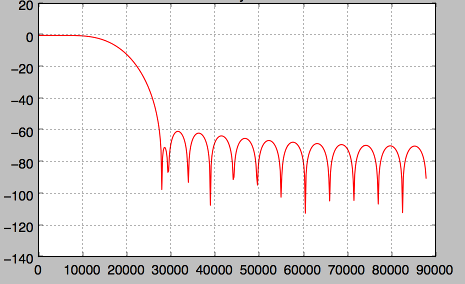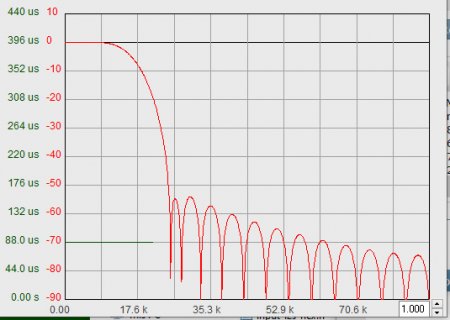/* Audio Library for Teensy, Ladder Filter
* Copyright (c) 2021, Richard van Hoesel
*
* Permission is hereby granted, free of charge, to any person obtaining a copy
* of this software and associated documentation files (the "Software"), to deal
* in the Software without restriction, including without limitation the rights
* to use, copy, modify, merge, publish, distribute, sublicense, and/or sell
* copies of the Software, and to permit persons to whom the Software is
* furnished to do so, subject to the following conditions:
*
* The above copyright notice, development funding notice, and this permission
* notice shall be included in all copies or substantial portions of the Software.
*
* THE SOFTWARE IS PROVIDED "AS IS", WITHOUT WARRANTY OF ANY KIND, EXPRESS OR
* IMPLIED, INCLUDING BUT NOT LIMITED TO THE WARRANTIES OF MERCHANTABILITY,
* FITNESS FOR A PARTICULAR PURPOSE AND NONINFRINGEMENT. IN NO EVENT SHALL THE
* AUTHORS OR COPYRIGHT HOLDERS BE LIABLE FOR ANY CLAIM, DAMAGES OR OTHER
* LIABILITY, WHETHER IN AN ACTION OF CONTRACT, TORT OR OTHERWISE, ARISING FROM,
* OUT OF OR IN CONNECTION WITH THE SOFTWARE OR THE USE OR OTHER DEALINGS IN
* THE SOFTWARE.
*/
//-----------------------------------------------------------
// Huovilainen New Moog (HNM) model as per CMJ jun 2006
// Implemented as Teensy Audio Library compatible object
// Richard van Hoesel, v. 1.04, Feb. 18 2021
// v1.4 FC extended to 18.7kHz, max res to 1.8, 4x oversampling,
// and a minor Q-tuning adjustment
// v.1.03 adds oversampling, extended resonance,
// and exposes parameters input_drive and passband_gain
// v.1.02 now includes both cutoff and resonance "CV" modulation inputs
// please retain this header if you use this code.
//-----------------------------------------------------------
//
https://forum.pjrc.com/threads/60488?p=269609&viewfull=1#post269609
#ifndef filter_ladder_h_
#define filter_ladder_h_
#include "Arduino.h"
#include "AudioStream.h"
class AudioFilterLadder: public AudioStream
{
public:
AudioFilterLadder() : AudioStream(3, inputQueueArray) {};
void frequency(float FC);
void resonance(float reson);
void octaveControl(float octaves);
void passband_gain(float passbandgain);
void input_drive(float drv);
virtual void update(void);
private:
float LPF(float s, int i);
void compute_coeffs(float fc);
bool resonating();
float alpha = 1.0;
float beta[4] = {0.0, 0.0, 0.0, 0.0};
float z0[4] = {0.0, 0.0, 0.0, 0.0};
float z1[4] = {0.0, 0.0, 0.0, 0.0};
float K = 2.8;
float Fbase = 800;
float Qadjust = 1.0f;
float octaveScale = 1.0f/32768.0f;
float pbg = 0.0f;
float overdrive = 1.0f;
float host_overdrive = 1.0f;
float oldinput = 0;
audio_block_t *inputQueueArray[3];
};
#endif



